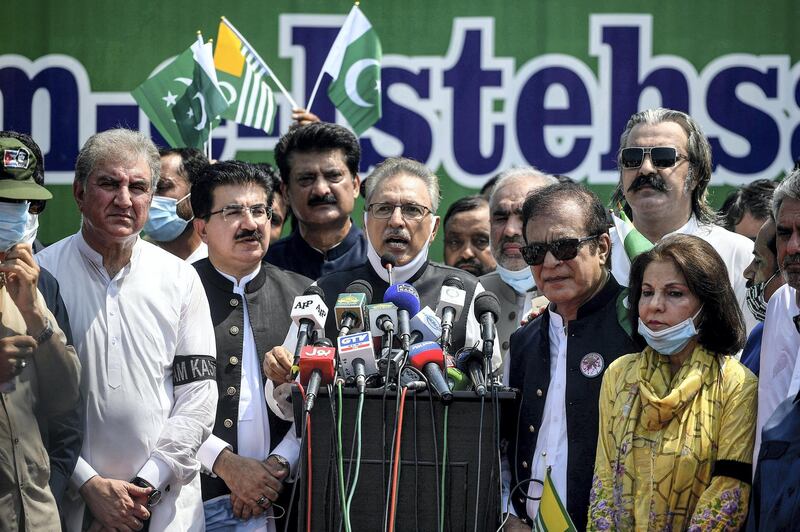The French Foreign Ministry summoned Pakistan's envoy to dispute claims by President Arif Alvi that a new law cracking down on radical Islam stigmatises Muslims.
Referring to the legislation drafted after the beheading of a French teacher by an Islamist radical over cartoons of the Prophet Mohammed, Mr Alvi said French laws were being passed "in favour of a majority to isolate a minority", describing the move as a "dangerous precedent".
"When you insult the Prophet, you insult all Muslims," he said at a conference on Saturday.
"I urge the political leadership of France not to entrench these attitudes into laws ... You have to bring people together, not to stamp a religion in a certain manner and create disharmony among the people or create bias."
Pakistan was one of several Muslim countries in which anti-French protests broke out in October over President Emmanuel Macron's defence of the right to show cartoons depicting the Prophet Mohammed.
Pakistan, the country with the second-highest number of Muslims in the world after Indonesia, doesn't have an ambassador in France.
In the wake if Mr Alvi's remarks, the French Foreign Ministry said on Monday that it had called in Pakistan's envoy to register "our surprise and our disapproval, given that the bill contains no discriminatory element".
"It is guided by the basic principles of freedom of religion and conscience, makes no distinction between the different religions and applies therefore equally to all faiths," the ministry said.
"Pakistan must understand this and adopt a constructive attitude for our bilateral relations."

The law passed by the lower house of the French Parliament last week is also known as the "anti-separatism" bill in reference to Mr Macron's claim that Islamists are closing themselves off from French society by refusing to embrace secularism, gender equality and other French values.
The legislation significantly expands the state's powers to close religious organisations and places of worship if they are found to air "theories or ideas that "provoke hate or violence towards a person or people".
It also creates a new crime of "separatism" – described as threatening a public servant in order to gain "a total or partial exemption or different application of the rules" – punishable by up to five years in prison.
Pakistan's government has been particularly virulent in its condemnation of Mr Macron's clampdown on extremism, which follow a wave of attacks in which more than 250 people were killed.
Prime Minister Imran Khan accused Mr Macron on Sunday of "attacking Islam" and choosing to "encourage Islamophobia" for defending the right to publish cartoons of Prophet Mohammed.








